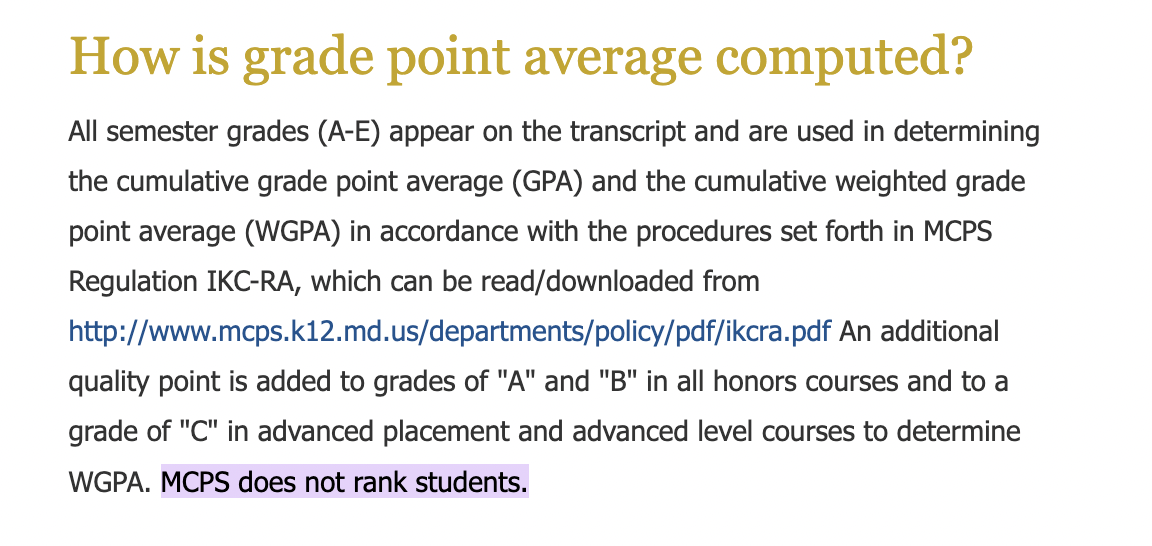The college admissions process heavily relies on numbers. GPA, SAT/ACT scores, AP exam scores, and for some students, class rank. While class ranks were discontinued in MCPS, they remain an important numerical indicator of academic performance for students across the country.
How class ranks are determined can vary from school district to school district, but the basic principle remains consistent: ranking provides an insight into how a student’s academic performance stacks up against that of their classmates within the same school. Students are typically ranked by GPA, where the highest GPA is first, the second highest comes second and so on. However, some school districts also factor in the course rigor a student has undertaken, as that can have an impact on GPA as well.
While class rankings could be a helpful objective metric to see how a student is performing, they can create excessive pressure. “I’m grateful that MCPS does not have class ranks because it would create much more pressure for all students,” sophomore Andrea Chen said. “As long as individual students know their own grades and value their hard work, there would be no need for ranks.”
Additionally, they can cause a toxic and competitive student environment, encouraging students to compete against each other for a better rank. “I feel like class ranks would cause a lot of competition because everyone would be fighting for a higher place. There’s already enough competition at Wootton as is and there’s no need for more,” senior Dhruv Das said. “I also think our academic records should stand on their own, and we shouldn’t have to be compared to our friends.”
Because of this excess competition, students might focus too much on their ranking, and let that impact other choices they make. The Journal of Student Research did a study with 20 participants, ranked anywhere between 1-253 of their class. When the participants were asked “Are there any classes that you wanted to take but couldn’t because they would negatively impact your rank?” 16 responded yes, and the other four responded no. A class ranking system could foster an environment where students are more focused on how they are ranked than taking classes that interest them.
To attempt to combat the negative effects of class ranks, districts nationwide have begun introducing alternatives to class ranks so that students have a way of knowing how they stand in their class without such a direct comparison. According to US News, some high schools have switched to a cum laude system where students are placed into groups based on their GPA instead of giving an individual ranking. There are three categories: cum laude, magna cum laude and summa cum laude, like Latin honors in college.
As more school districts shift away from class ranking systems, they become less of a considered factor in college admissions. According to The Daily Pennsylvanian, the dean of admissions at University of Pennsylvania confirmed that only about 30% of the pool of applicants attend a school with a class ranking system and are able to report it. Because of this, class ranks are declining in importance and are not an essential factor for admission.








